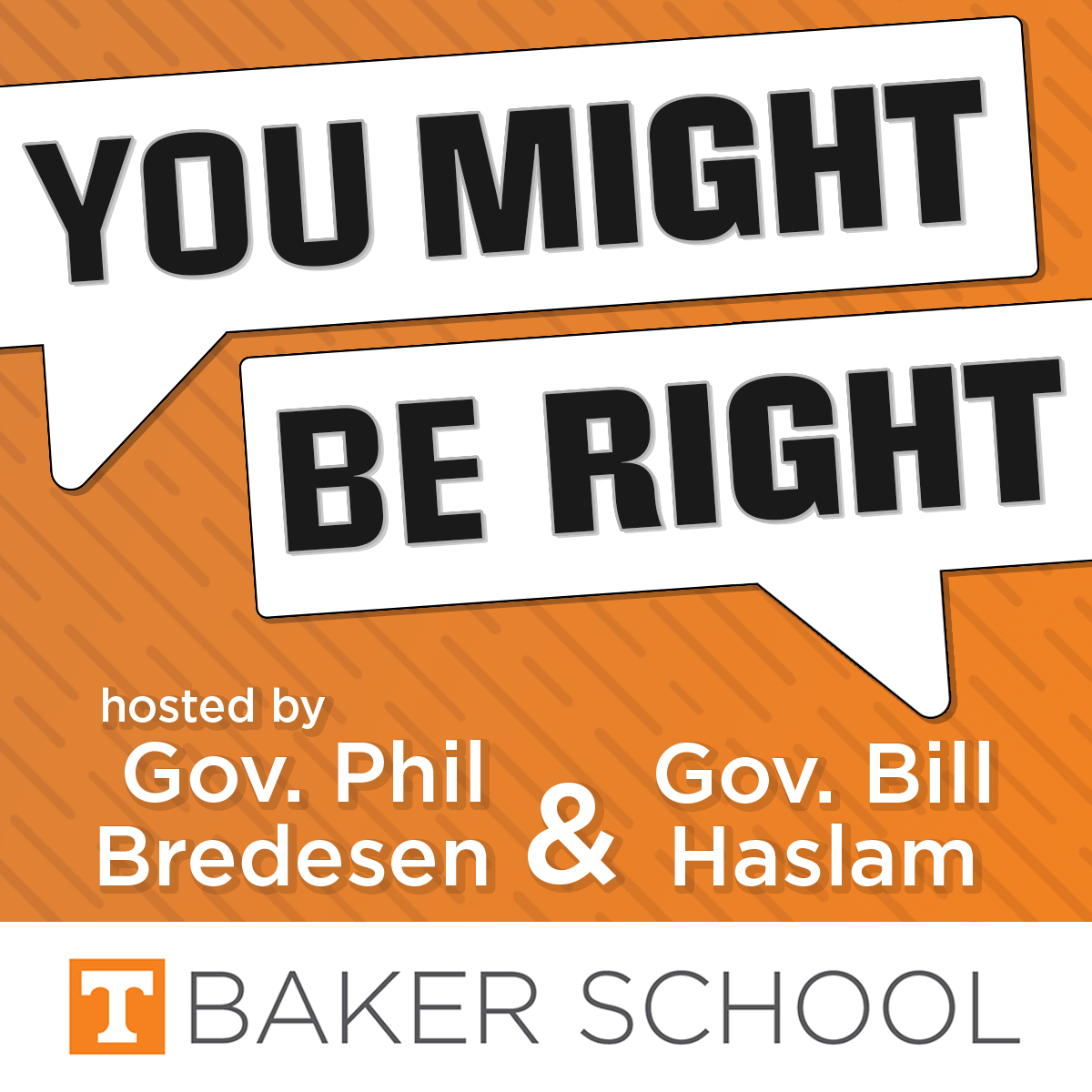Affirmative Action and College Admissions: What’s Next?
SEASON 3, EPISODE 3: A legal analyst and veteran college admissions official join Governors Bredesen and Haslam to discuss what’s next for higher education following the Supreme Court’s ruling on affirmative action
In June 2023, the Supreme Court effectively banned the use of race-conscious admissions policies in higher education. The ruling has brought renewed attention to college admissions and how campuses that want a diverse student population can meet their goals. Sarah Isgur, a legal and political analyst and writer for The Dispatch, and Marie Bigham, the founder and executive director of ACCEPT (Admissions Community Cultivating Equity & Peace Today), join Governors Bredesen and Haslam to discuss the ruling, the response, and what’s next for higher education.
“Do something other than a checkbox”
Isgur, who co-hosts a podcast, “Advisory Opinions,” with David French (a guest on the first episode of You Might Be Right, about gun violence) provided an overview of the Supreme Court’s ruling, including how it applies to public schools and nearly all private schools (except for a few that do not accept federal money) but exempts military academies, and if the decision was just about admissions in higher ed (“Depends on who you ask,” she said).
How does she define the diversity that would meet the needs of college students and the larger community? “I think it’s diversity of life experience…the problem is that it doesn’t lend itself to an easy way for admissions officers,” Isgur said.
“What you have are schools that are going to have to figure this out in a less lazy way, frankly, in my view, which is do something other than a checkbox, actually have an admissions policy that looks at diversity,” she said. “You may need to change your legacy policies, etcetera to do that. And you can ask essay questions like, tell us about a time that you overcame hardship or adversity, things like that that actually will go to some type of diversity in the class, diversity of experience and life experience, and not simply diversity of tone of skin.”
“This is going to impact generational wealth and the ability to build that”
Bigham, who worked in college admissions at several higher education institutions as well as college counseling at the high school level before founding ACCEPT, said that she thinks the impact of the ruling will be “large and systemic, and it’s going to extend far beyond higher education.”
“I think we’re going to see fewer students of color attend those places which have the concentrations of wealth, power, network, access, ability to pay for students…I think we’re also going to see fewer and fewer students of color in college broadly,” she said. “With fewer people of color in college, we’re going to see fewer of them with bachelor’s degrees, fewer in positions of power, in leadership, with jobs and careers that provide social mobility. This is going to impact generational wealth and the ability to build that, and I think that disparity will continue to grow.”
“There is no one way to do this”
What should colleges and universities that want to ensure they have a diverse student body do in the aftermath of this ruling? While this episode was recorded prior to the release of federal guidance (Read the August 2023 FAQs and Dear Colleague Letter from the Departments of Education and Justice; and the September 2023 report from the Department of Education), both Isgur and Bigham offered observations.
Bigham’s advice centered on encouraging colleges and universities to “focus on the parts of the pathway to college that are not at the selection point, and that’s a whole lot,” she said. “That’s helping students get access to great public education K-12, that’s making sure students have curricular opportunities and challenge all the way through. That’s making sure that the recruitment process is intentional and focused.”
Isgur pointed to California, which banned the use of affirmative action in the late 1990s, as one example. “It’s really interesting…there’s nuggets in here for everyone to glom on to,” she said, noting that while California came in on the side of Harvard and UNC in the Supreme Court case to argue its experiment has been a failure, both sides used parts of the story in their arguments.
“The University of California system as a whole has been fine, the same, basically, but California’s right that the number of Black and Latino students enrolling, for instance in Berkley, has gone down,” Isgur said. “Now, the reason they’re not saying that the school has gotten less racially diverse is because, in fact, the number of Asian students has gone up.”
As to potential policy options, she noted that California has spent “huge, huge sums of money” to expand the applicant pool and encourage students to apply, and that Texas has a rule that guarantees admissions to a public college for students who graduate in the top 10% of their class from a public high school.
“I think ther record is mixed, which is to say there is no singular answer,” Isgur concluded. “There’s also no one way to do this, which is good news, too.”
Subscribe and follow You Might Be Right wherever you get your audio content – including Apple Podcasts and Spotify – to never miss an episode, or sign up for our email list to receive new episodes straight to your inbox here. Join the conversation on social media by following You Might be Right (@YMBRPodcast) on Twitter, Facebook, and Instagram.
Subscribe and follow You Might be Right wherever you get your audio content – including Apple Podcasts and Spotify – to never miss an episode, or sign up for our email list to receive new episodes straight to your inbox each week here.

Join the conversation on Twitter by following @UTBakerSchool, @PhilBredesen, and @BillHaslam.